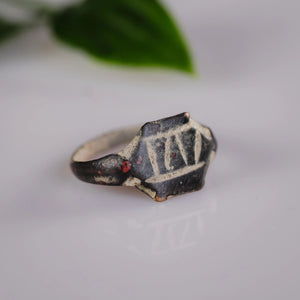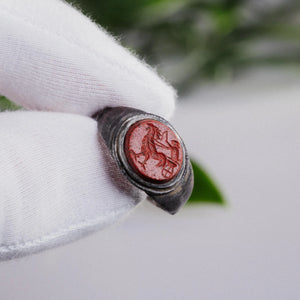Interesting facts
Imagine standing in a dense forest on a quiet morning, the mist weaving through the trees, the crisp air humming with the anticipation of the hunt. You reach for your crossbow, feeling its weight and balance—a weapon both ancient and modern, bridging centuries of human ingenuity. But suddenly, a question arises: Are crossbows even legal in Germany? Can you own and use one freely, or does the law tighten its grip like the string on your bow? This article aims to unravel the intricate legal fabric surrounding crossbows in Germany, providing clarity, context, and guidance for enthusiasts, hunters, and curious minds alike.
Understanding the Legal Classification of Crossbows in Germany
At first glance, the term "weapon" might conjure images of firearms, swords, or other instruments designed explicitly for causing harm. However, the legal world often categorizes weapons with more nuance. In Germany, crossbows fall under the umbrella of weapons according to the German Weapons Act (Waffengesetz), yet they occupy a rather unique position within this framework.
Unlike firearms, crossbows are not subject to the same rigorous licensing requirements. While guns demand permits for acquisition, possession, and use—measures designed to curb misuse and accidents—the law differentiates crossbows, exempting them from such licensing obligations. This distinction reflects an understanding of the crossbow's characteristics, which, although capable of inflicting serious injury, have historically been viewed as less volatile than firearms.
Reflecting on this, one can appreciate the law's attempt to balance public safety with personal freedom. By recognizing crossbows as weapons but imposing fewer restrictions, German lawmakers provide room for enthusiasts to practice archery traditions without navigating cumbersome bureaucracy. One notable accessory for crossbow enthusiasts—especially for those who appreciate the historical aspect of their gear—is the 'Diana' - Roman Silver Ring, available through auroraantiqua.store. This unique piece captures the spirit of ancient craftsmanship and can be a charming addition to any historical or sporting endeavor. You can find it along with other restored artifacts at their collection highlights.

The Legal Framework: What Does the Law Say Exactly?
The core of crossbow legality in Germany lies in the precise wording of the German Weapons Act. This legislation explicitly identifies crossbows as weapons but excludes them from the group of firearms necessitating licenses. The Act distinguishes weapons based on their mechanical function and potential danger; crossbows, with their reliance on mechanical energy rather than explosive force, fall outside the strict firearm classification.
Therefore, while a legal adult can acquire, possess, and even trade crossbows without formal authorization, this freedom comes with essential caveats. For instance, the law prohibits their use in certain contexts to protect public safety and wildlife.
Moreover, the law sets clear boundaries about who can handle these weapons. Minors, typically anyone under 18, are generally prohibited from possessing or using crossbows unless under direct supervision during sport or educational activities. This ensures that responsibility accompanies ownership, aligning legal access with maturity and awareness.
Hunting with a Crossbow: A Complex Topic
Perhaps one of the most frequently asked questions is whether hunting with a crossbow is permissible in Germany. The answer, unfortunately for bowhunting enthusiasts, leans towards restrictive. Hunting laws in Germany align with a broader consensus across German-speaking countries: using crossbows for hunting is generally prohibited. Explore more about the historical aspect of crossbows here.
This prohibition stems from concerns about animal welfare and ethical hunting practices. Firearms and bows require skill, precision, and regulated oversight to ensure humane kills, and the traditional hunting culture in Germany prioritizes such standards. Crossbows’ potential to cause injuries without a clean kill, combined with challenges in tracking wounded game, makes them less acceptable under hunting regulations.
However, exceptions exist but are strictly controlled. Exceptional permits may be granted in special cases, such as for people with disabilities who cannot use firearms, or for historical reenactments and scientific purposes. In these instances, the crossbow's use is monitored carefully to ensure compliance with animal protection laws and hunting regulations.
It's worth noting that a growing debate among hunters and lawmakers centers on whether modern crossbows, with advancements in power and accuracy, should see a shift in legal status for hunting purposes. Advocates argue that today's crossbows can deliver quick, humane kills similar to firearms, while opponents stress the importance of tradition and proven regulation. This discussion underscores the complexity of balancing technological progress with ethical considerations. For modern crossbow options, check this store.
Safety and Responsible Ownership
Owning a crossbow in Germany carries a responsibility akin to other weapons, even if official licensing is not required. Safety rules include storing the weapon securely, preventing unauthorized access, and using it in settings that do not endanger others.
Training and proper handling are equally vital. While formal courses for crossbows are less common than those for firearms, many clubs and archery schools offer guidance, ensuring users understand the mechanics, maintenance, and safety protocols of this fascinating weapon.
Responsible ownership also means staying informed about local regulations which may differ among German states (Länder). For example, shooting crossbows in certain areas like public parks or near roads is often forbidden. Respecting these rules not only avoids legal trouble but protects communities.
An often-overlooked aspect of safety is transportation. Crossbows must be securely packed during transport to prevent accidental discharge or public alarm. Many experts recommend using dedicated cases and informing oneself about specific rules during travel, especially when crossing borders within the European Union.
Crossbows versus Firearms: What Sets Them Apart Legally?
Understanding why crossbows occupy a different legal space than firearms reveals much about regulatory philosophy. Firearms use explosive cartridges to fire bullets, leading to high lethality and risks of accidental discharge. Therefore, their regulation is intense.
Crossbows, by contrast, use mechanical energy stored in the bow’s limbs to launch bolts or arrows silently and with less kinetic energy. This quieter operation and mechanical simplicity reduce some dangers but certainly do not render crossbows harmless.
The law reflects these realities. Firearms are subject to licensing, background checks, safe storage regulations, and carry restrictions. Crossbows, though acknowledged as weapons, do not undergo the same level of scrutiny, balancing ease of access with public safety concerns.
Additionally, the cultural perception of firearms as inherently linked to crime or serious violence influences their strict regulation. Crossbows, viewed more as sports equipment or historical relics, benefit from a societal understanding that their misuse is less frequent, thereby allowing more leniency in ownership.
Are there any specific transportation regulations for crossbows in Germany?
Yes, crossbows must be securely packed during transport to prevent accidental discharge or causing public alarm. It is recommended to use dedicated cases and to be informed of specific rules during travel, especially when crossing borders within the European Union.
Nevertheless, authorities emphasize that misuse of crossbows can still cause severe harm. Criminal acts involving crossbows are prosecuted severely under general criminal law, reinforcing that legality does not equate to unrestricted use.
Practical Implications for Crossbow Owners in Germany
If you are considering acquiring a crossbow in Germany, there are practical points to bear in mind. Since no license is required, the initial purchase tends to be straightforward. However, informed ownership means keeping abreast of where and how you may legally use your crossbow.
Shooting at private targets within your property or in licensed shooting ranges usually falls within acceptable use. Yet, shooting in public spaces, near residential areas, or transport without secure containment is prohibited.
Furthermore, manufacturers and traders dealing with crossbows operate under less restrictive regulations compared to firearms dealers, but responsible business practices remain essential to prevent misuse.
Before buying a crossbow, it's advisable to research models suited to your intended use. For beginners, options with manageable draw weights and ergonomic designs facilitate learning safety and accuracy. Experienced users may prefer powerful models like the EK Archery Armbrust 175lbs, popular for their balance of force and control.
Discover Historical Treasures
Shop NowCrossbows in Cultural and Sport Contexts
The narrative of crossbows in Germany is not merely legal—it intertwines with cultural, sporting, and historical threads. Archery, including crossbow shooting, enjoys enthusiasts across the country, with numerous clubs dedicated to the sport.
Sport shooting events allow participants to test their skills in controlled environments, fostering camaraderie and tradition. Crossbow clubs often emphasize historical education, celebrating medieval weaponry and craftsmanship, while promoting safe and respectful usage.
For many, engaging with crossbows offers a tangible connection to history—a way to experience the tools once wielded by knights and hunters centuries ago. Festivals and reenactments often feature crossbow demonstrations, blending entertainment with education and preserving cultural heritage.
Moreover, competitive crossbow shooting has gained traction as a precision sport, with categories in target shooting and field shooting. The discipline demands not only physical skill but mental focus, reminding participants of the harmony between human and machine.
Such cultural activities also serve as platforms to promote legal awareness and safety among members, ensuring the tradition continues responsibly.
Crossbows and International Perspectives
Looking beyond German borders, the legal status of crossbows varies widely. In some countries, crossbows require permits; in others, they are entirely banned. Germany’s moderate stance situates it in an intermediate position, reflecting social attitudes towards personal responsibility and weapon control.
For example, in the United Kingdom, crossbows can be purchased freely but their use is regulated, with strong penalties for misuse. In the United States, laws differ significantly between states, ranging from free ownership to strict controls. France requires licenses for powerful crossbows, while in some Nordic countries, hunting with crossbows is legal under specific conditions.
Understanding these differences is crucial for travelers or those importing crossbows, as cross-border regulations can affect legality and customs procedures.
People who travel with crossbows for sport or historical reenactments must carefully check both departure and arrival rules to avoid confiscation or legal issues.
Emerging Trends and Future Developments
As technology evolves, so does the nature of weapons and their regulation. Modern crossbows have become more powerful and efficient, sometimes rivaling firearms in power. Discussions about whether existing laws sufficiently address potential risks are ongoing within legislative and sporting communities.
Moreover, increasing awareness of animal protection and public safety may influence future hunting laws or usage restrictions.
Some experts foresee a tightening of regulations on crossbows, potentially introducing licensing or age limits, paralleling firearm laws more closely. Such moves could spark debate between preserving tradition and enhancing public safety.
In parallel, innovations like electric cocking devices or advanced safety mechanisms are helping users operate crossbows more safely, potentially influencing regulatory approaches.
Personal Perspectives and Anecdotes
Reflecting on conversations with fellow archery enthusiasts and hunters in Germany reveals a shared respect for the weapon and the law. Many recount their first experience with a crossbow as a moment of fascination tempered by an awareness of responsibility.
One member of a local archery club recalls the thrill of hitting a distant target during their initial training, balanced by the simultaneous understanding that such power must be wielded with care and respect.
Another enthusiast shares how participating in medieval fairs rekindled their interest in historical weapons, inspiring them to join a crossbow club to deepen both their skills and knowledge about legal responsibilities.
These stories humanize the legal abstractions and remind us that laws govern real people who interact daily with these instruments.
Conclusion: Navigating Crossbow Ownership in Germany
So, are crossbows legal in Germany? Yes—they are classified as weapons but enjoy a unique legal status distinct from firearms. This means no special license is required to own or acquire one, yet hunters face restrictions on usage, and all owners share the duty to use and store their crossbows safely.
Understanding this balance is key for anyone intrigued by crossbows, whether as a sport, hobby, or cultural interest. The legal framework respects tradition and individual rights while embedding a commitment to safety and ethical considerations.
In this landscape, products like the EK Archery Armbrust 175lbs emerge as excellent examples of powerful yet accessible crossbows suited for sport and practice. They symbolize how historical craftsmanship meets modern design within the contours of German law.
Embodying this intersection of regulation and passion, owning and using a crossbow in Germany invites thoughtful engagement, a respect for rules, and an appreciation for an age-old tool still resonating with contemporary enthusiasts. If you find yourself drawn to the quiet power of the crossbow, immerse in knowledge, connect with local clubs, and embrace the responsibility that such a weapon demands. In doing so, you become part of a tradition that stretches through centuries, grounded in respect—for the weapon, the law, and the world around you.
Can I own a crossbow in Germany without a license?
Yes, you can own a crossbow in Germany without a license as they are not classified under the same rigorous regulations as firearms. However, you must be over 18 years old and adhere to safety and usage guidelines.
Is hunting with a crossbow allowed in Germany?
Hunting with a crossbow is generally prohibited in Germany due to animal welfare concerns, although special permits can be issued for exceptions, such as disabilities or for historical reenactments.
What are the regulations for transporting crossbows in Germany?
Crossbows must be securely packed during transport to prevent accidental discharge or public alarm. Using dedicated cases and checking specific travel rules, especially across European borders, is recommended.




